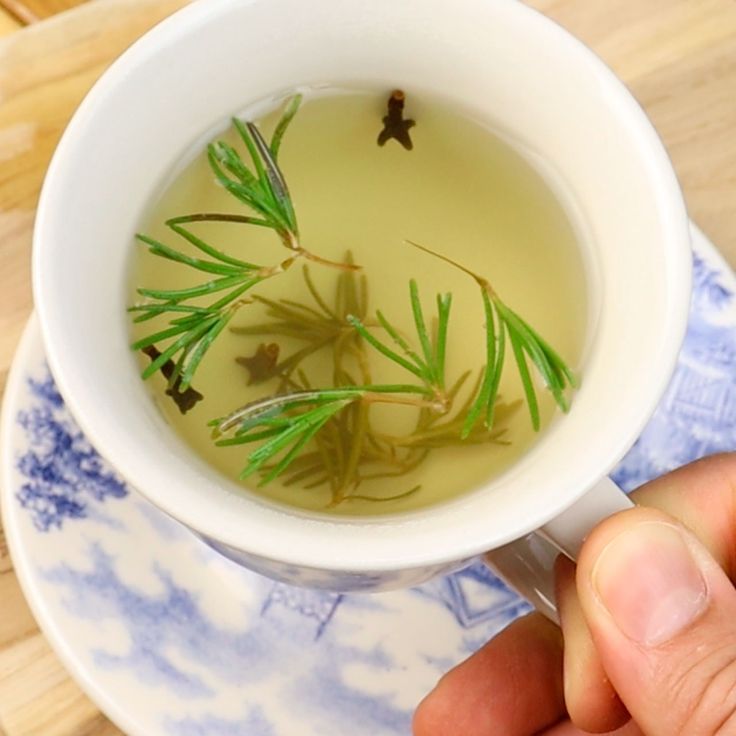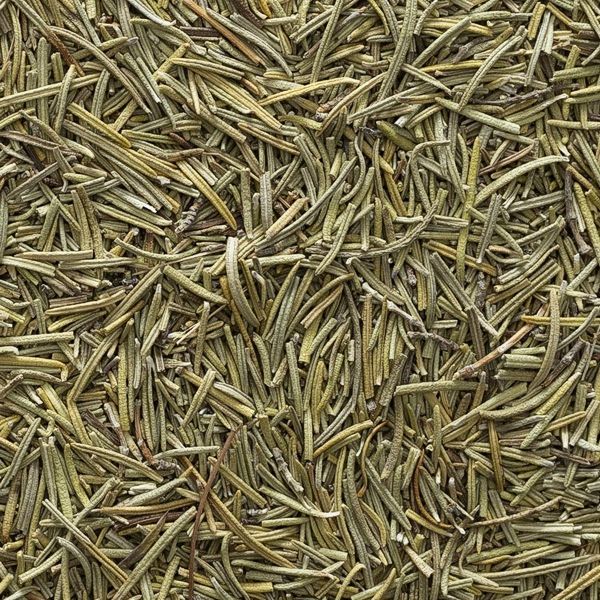Rosemary tea is a budding favorite in the realm of herbal beverages, celebrated not just for its unique flavor but also for its numerous health benefits. Derived from the aromatic leaves of the Rosmarinus officinalis plant, rosemary has been used for centuries in culinary dishes and traditional medicine. This article delves into the origins of rosemary, the preparation of rosemary tea, its health benefits, and how to incorporate this delightful herbal infusion into your daily life.

Origins and History of Rosemary
A Glimpse into Rosemary’s History
Rosemary is native to the Mediterranean region and has been used since ancient times. Its name derives from the Latin “ros marinus,” meaning “dew of the sea,” as it often grows in coastal areas. Ancient Greeks and Romans revered rosemary for its culinary and medicinal properties and used it in various rituals and ceremonies.
In addition to its culinary uses, rosemary has a rich history in traditional medicine. Ancient herbalists employed rosemary as a remedy for ailments such as digestive issues, respiratory problems, and even cognitive decline. It was believed to enhance memory, making it a favored herb among students and scholars.
Cultivation and Harvesting
Rosemary is a hardy perennial shrub that thrives in sunny, well-drained locations. It is easy to grow, making it a popular choice in home gardens. The plant boasts needle-like leaves and small blue flowers, which bloom in spring and summer. Gardeners can harvest rosemary leaves throughout the year, but they are most flavorful when taken in the morning after the dew has evaporated.
To make rosemary tea, fresh or dried leaves are ideal, allowing you to brew the essence of this fragrant herb. High-quality, strong-flavored leaves will yield the best tea.
How to Prepare Rosemary Tea
Ingredients
To make a simple cup of rosemary tea, gather the following ingredients:
- 1 tablespoon of fresh rosemary leaves (or 1 teaspoon of dried rosemary)
- 1 cup of water (approximately 240 ml)
- Optional: honey, lemon, or other sweeteners for taste
Preparation Steps
- Boil Water: Start by bringing the water to a boil in a small saucepan or kettle.
- Add Rosemary: Once boiling, remove the water from heat and add the rosemary leaves. If you are using fresh rosemary, gently crush the leaves to release their aromatic oils before placing them in the water.
- Steep: Cover the saucepan and let the rosemary steep for about 5-10 minutes. The longer you steep, the stronger the flavor. If you prefer a milder taste, reduce the steeping time.
- Strain and Serve: After steeping, use a fine mesh strainer to remove the rosemary leaves, pouring the tea into your cup.
- Flavor to Taste: Optionally, add honey or lemon for additional flavor. Enjoy your warm cup of rosemary tea!

Health Benefits of Rosemary Brew
1. Rich in Antioxidants
Rosemary is packed with antioxidants, compounds that help combat oxidative stress in the body. Oxidative stress can lead to chronic diseases and accelerated aging. Drinking rosemary tea regularly may help protect cells from damage caused by free radicals and support overall health.
2. Improves Digestion
Traditionally, rosemary has been used to alleviate digestive issues. The presence of compounds like rosmarinic acid may help stimulate bile production, which aids in fat digestion. Drinking rosemary tea after meals can promote healthy digestion, reduce bloating, and combat indigestion.
3. Enhances Memory and Cognitive Function
One of the most famous associations with rosemary is its ability to enhance memory and cognitive function. Studies suggest that the aroma of rosemary may improve concentration and memory retention. Consuming rosemary tea can provide a mental boost, making it an excellent choice for students and professionals facing demanding tasks.
4. Reduces Stress and Anxiety
The soothing aroma of rosemary contributes to its stress-relieving properties. Drinking rosemary tea can promote relaxation and help alleviate anxiety and stress. The calming effect may make it a popular choice in herbal blends designed for relaxation.
5. Anti-inflammatory Properties
Chronic inflammation in the body can contribute to various health issues, including arthritis, heart disease, and inflammatory bowel disease. Antioxidants and anti-inflammatory compounds present in rosemary may help mitigate inflammation, promoting joint health and overall well-being.
6. Supports Immune Function
Rosemary’s rich antioxidant content can also boost the immune system. By fighting off free radicals and oxidative stress, rosemary tea may help the body defend itself against infections and illnesses. Incorporating rosemary tea into your routine can be part of a comprehensive approach to maintaining good health.
7. Promotes Healthy Hair and Skin
Additionally, rosemary is often used in hair and skincare products due to its beneficial properties. Drinking rosemary tea may support hair health by improving circulation to the scalp and promoting growth. Its anti-inflammatory and antimicrobial properties can also benefit skin health, helping to reduce acne or skin irritations.

Culinary Uses Beyond Tea
1. Cooking and Flavoring
In addition to brewing tea, fresh rosemary leaves are a popular culinary herb. The aromatic flavor enhances a variety of dishes, including roasted meats, vegetables, soups, and marinades. Rosemary pairs particularly well with potatoes, lamb, chicken, and Mediterranean cuisine. Experimenting with rosemary in your cooking can introduce delightful new flavors to your meals.
2. Infused Oils and Vinegars
Rosemary-infused oils and vinegars are delicious and versatile kitchen staples. To create rosemary-infused olive oil, place fresh rosemary sprigs in a bottle of olive oil and allow it to steep for a few weeks. Use this infused oil for salad dressings, dipping bread, or drizzling over grilled vegetables.
Creating rosemary-infused vinegar follows a similar process, resulting in a flavorful addition for dressings and marinades.
3. Rosemary in Baking
Incorporating rosemary into baked goods can create unique flavor profiles. Consider adding minced rosemary to bread dough, shortbread cookies, or savory scones. The herb’s natural fragrance can elevate your baked treats, providing a delightful surprise for anyone tasting them.

How to Incorporate Rosemary Brew into Your Daily Routine
1. Morning Ritual
Consider starting your day with a refreshing cup of rosemary tea instead of coffee or other caffeinated beverages. The light, aromatic flavor can energize you while providing essential antioxidants for the day ahead. Pair it with breakfast or enjoy it as a mid-morning pick-me-up.
2. Afternoon Relaxation
As an afternoon ritual, rosemary tea can serve as a soothing beverage to help combat stress and fatigue. When the post-lunch slump hits, sipping on rosemary tea can provide a calming effect, promoting clarity and focus for the remainder of your workday.
3. Post-Meal Digestive Aid
Drinking rosemary tea after meals can aid digestion and alleviate discomfort. Making this a part of your routine post-lunch or dinner can help your body process food more effectively while making the experience more enjoyable.
4. Learning and Studying
If you’re studying or have tasks that require mental focus, brew a cup of rosemary tea beforehand. The aroma and flavor can help enhance concentration and retention of information, making it an excellent companion for study sessions or brainstorming meetings.
5. Evening Wind Down
Incorporating a cup of herbal tea into your evening routine can establish a calming wind-down ritual. Sip on rosemary tea while reading a book, watching a movie, or unwinding after a busy day. The relaxing properties can help prepare your body for restful sleep.

Considerations and Precautions
1. Allergic Reactions
While rosemary is generally safe for most individuals, some may experience allergic reactions or sensitivities. If you notice any adverse reactions after consuming rosemary tea, discontinue use and consult a healthcare professional.
2. Pregnancy and Nursing
Pregnant or nursing women should consult their healthcare provider before consuming rosemary in large amounts or as a concentrated tea. While small amounts of rosemary as a culinary herb are generally considered safe, excessive consumption may lead to complications.
3. Potential Drug Interactions
Rosemary may interact with certain medications, particularly anticoagulants or blood thinners. If you are taking any medications, consult your healthcare provider before regularly incorporating rosemary tea into your routine.
Conclusion: Embrace the Benefits of Rosemary Tea
Rosemary tea is more than just a flavorful herbal infusion; it brings a multitude of health benefits and culinary possibilities. With its rich history and cultural significance, rosemary has transcended its humble beginnings to become an indispensable part of many households. Whether you are seeking a comforting beverage, a new flavor for your dishes, or a natural remedy for various ailments, rosemary tea holds the potential to enhance your life.
Integrating rosemary tea into your daily routine can lead to improved digestion, enhanced cognitive function, and a soothing escape from the stresses of everyday life. With a multitude of ways to enjoy this delightful herbal brew, you can explore new recipes, flavor combinations, and wellness benefits.
So, take a moment to brew a cup of rosemary tea; enjoy the aroma, savor the flavor, and embrace the wellness benefits this ancient herb has to offer. Whether served hot or iced, rosemary tea can become a cherished part of your wellness and culinary journey. Discover the pleasure of this timeless herbal infusion and let it invigorate your mind, body, and spirit.